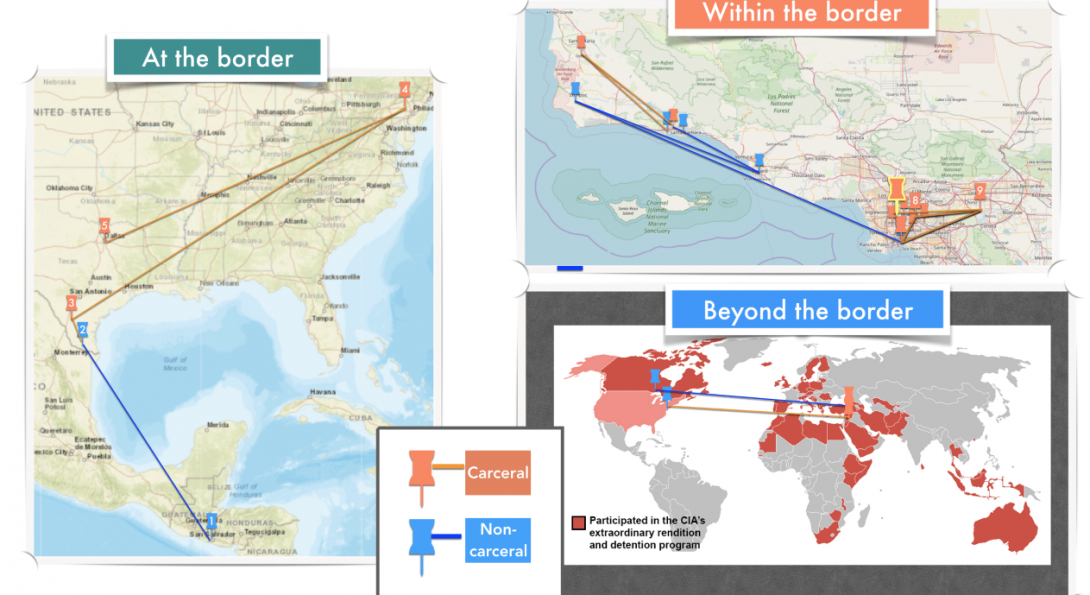Carceral Migration Initiative

This project uses a postcolonial, setter-empire lens to re-interpret mass incarceration and contemporary instances of state racial punishment more broadly. In so doing, Gurusami and Kurwa develop a theory of carceral migration to explicate the treatment of people policed within, at, and outside of U.S. borders. The authors define carceral migration as the state’s use of legal punishment to force, restrict, or prevent movement of people of color. Examples of cases that fit this framework might include the forced movement tied to the domestic prison regime, the use of punishment to respond to migration at the border, and the obviation of the border to punish subjects of the war on terror. The authors see carceral migration as not just a theory of state action, but also as a method of analysis that allows scholars to better understand cases of punishment with movement implications and cases of movement with punishment implications. This framework thus highlights how the regulation of space functions as a tool of state control and reproduction of racial power structure. Future directions for this work will include: mapping individual carceral pathways, working with community organizations to develop cartographies of state punishment, and crowdsourcing data on the punishment histories of people of color.